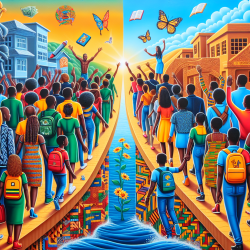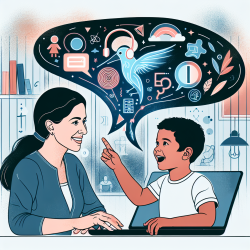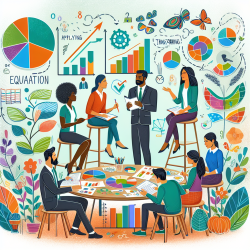Introduction
In the world of special education and therapy, the importance of understanding diverse cultural contexts cannot be overstated. As practitioners, our mission is to provide inclusive and supportive environments for all individuals, regardless of their background. A recent study titled "Community stigma, victimization, and coping strategies among gay, bisexual, and other cis-gender men who have sex with men in slum communities in Ghana" sheds light on the unique challenges faced by GBMSM (gay, bisexual, and other cis-gender men who have sex with men) in Ghanaian slum communities. This blog explores how the findings of this research can enhance our practice and encourage further exploration into culturally responsive therapy.
Understanding the Challenges
The study highlights two primary themes: the insecurities and criminalization of GBMSM activities and the coping strategies they employ. GBMSM in Ghana face significant stigma and victimization, often leading to physical harm and discrimination. This is compounded by the uncertainty surrounding the proposed LGBTQI+ bill in Ghana, which threatens to exacerbate these challenges.
For practitioners, understanding these challenges is crucial. It allows us to tailor our approaches to meet the specific needs of individuals who may be navigating similar environments. This understanding can also inform the development of interventions that promote safety, acceptance, and empowerment.
Implementing Research Outcomes
One of the key findings of the study is the development of coping strategies by GBMSM to navigate their challenging environments. These strategies include hiding one's sexuality, avoiding gender non-conforming men, and seeking relationships outside their communities. As practitioners, we can support these individuals by creating safe spaces where they can express their identities without fear of judgment or harm.
Interventions such as HIV Education, Empathy, Empowerment, Acceptance, and Commitment Therapy (ACT) are proposed as potential measures to improve the experiences of GBMSM in Ghanaian slum communities. These interventions can be adapted to our practice to foster resilience and promote mental health among marginalized populations.
Encouraging Further Research
While the study provides valuable insights, it also highlights the need for further research. The absence of comparative literature on GBMSM living in slum communities in Ghana underscores the importance of continued exploration in this area. By engaging in further research, we can gain a deeper understanding of the experiences of GBMSM and develop more effective interventions.
Practitioners are encouraged to collaborate with researchers and community organizations to conduct studies that address the unique needs of GBMSM in various cultural contexts. This collaborative approach can lead to the development of innovative solutions that promote inclusivity and support for all individuals.
Conclusion
The study on GBMSM in Ghanaian slum communities provides valuable insights into the challenges faced by marginalized populations. As practitioners, it is our responsibility to implement the outcomes of this research to improve our practice and promote inclusivity. By embracing diversity and fostering understanding, we can create environments where all individuals feel valued and supported.
To read the original research paper, please follow this link: Community stigma, victimization, and coping strategies among gay, bisexual, and other cis-gender men who have sex with men in slum communities in Ghana. BSGH-003.










